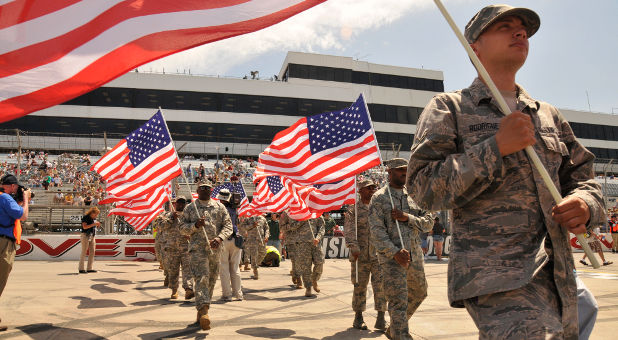War in Iraq: Confession of Veterans
The most famous blogger in this war was the infantryman Colby Buzzel. His blog, entitled “Colby Buzzel Sends War …” was visited daily by more than 5 thousand visitors. Before the army, he was a real loser: he took drugs, had problems with alcohol and was arrested several times. He could not stay at work longer than a couple of months, which is natural: it is impossible to find government jobs description worthy of the attention of a hired agent in the resume of a person with his education and working history.
Colby joined the army at age 26 and spent seven months in Iraq. For a man in his situation, the army was a good decision. After all, he was unlikely to be able to count on a good position in the federal sector. It’s quite difficult to qualify for a government position, even a resume builder option on the official website https://federalresumeguide.com/usajobs-resume-builder/ requires a competitive resume. And military affairs is a good chance to build a career from the very beginning.
But in the battle, Colby Buzzel was not particularly distinguished. But his blog gained incredible popularity because he shared very frank details of army life there. After returning to his homeland, Buzzel was recruited by the popular influential magazine Esquire, and in 2007 he received the prestigious Lulu Blooker Prize for his book My War: Killing Time in Iraq.
Difficult weekdays and sad holidays of soldiers
CARGO AND DRY PACK. A US soldier in combat conditions must carry up to 50 kg. This is standard ammunition – a rifle, helmet, body armor, as well as food, water, night vision devices and a bunch of electronics with batteries.
In the United States, everyone knows that a special Meal Ready-to-Eat diet has been developed for soldiers. Its main components are chicken, tuna, spaghetti, all kinds of seasonings, crackers, cheese, peanut butter, jelly, powdered dry drink, a plastic spoon and a plastic cup, and a “food warmer without fire”. In general, the soldiers menu includes about 24 dishes in bags. In addition to the diet, toilet paper and chewing gum are included. Such rations are owned by the US government, but can be bought online for $ 89.99.

HOT DISH WITHOUT FIRE. A “food warmer” is a playing-card-sized plate made up of magnesium dust interspersed with iron dust and salt. The miracle unit works on the basis of an ultrafast magnesium oxidation reaction, as a result of which heat is released. In order to activate the reaction, the soldier just needs to drop water on the “heater”. Heat generation starts instantly and lasts 10-12 minutes. Thus, dishes can be heated up to 40 degrees.
Packages in which food is packaged are shockproof and heat-resistant. Without damage, it can be dropped from a 380-meter height, stored for 5-7 years at temperatures from +38 C to -51 C.
In an Iraqi company, the real problem is the feeding of service dogs that are not designed for MRE. One of the commanders of the reservists in Iraq, Captain Gabriela Cook even asked her friends to send canned food for the four-legged. “The 13 dogs serving at the Police Academy in Baghdad since December 2004 have been eating in the trash, but it’s not possible to find real dog food for four-legged dogs in Iraq,” she wrote in her letter.
NAMES TO RIFFS. Many soldiers give names to their rifles, mostly women. “My rifle is called Mary,” Abraham writes on his blog. “That’s the name of my three-year-old daughter who is waiting for me in Indianapolis. Every night I kiss her before going to bed, and on the battlefield I fight her for my family.” Some commanders are ordered to give names to their weapons, believing that this raises the morale of the soldiers. “The sergeant made us name our rifles the way we want. He says the personal weapon on the battlefield is the wife and mother,” wrote American Sand Snake.
“Before the war, I did not know that I needed to be grateful for what I have”
One of Buzzel’s first blog posts was Men in Black. He wrote it after his military column fell under fire: “The next day, CNN reported just a few general phrases about it. And we went through real hell. Our motorcade moved through a real hurricane of death, hundreds of bullets flew overhead, several of mine “comrades were wounded and bleeding. And Iraqi militants, dressed in black clothes, loomed before our eyes.”
Many soldiers started their blogs following the example of Buzzel. For example, the 32-year-old Marine, Sean Dastman, who left valuable advice to the recruits: “Be polite with everything. Remember – everyone is armed.” And Jason Hartley, who called his blog “Just Another Soldier,” described his shock after landing in Iraq: “In fact, I’m not in the modern American army, but in prison, somewhere in 1940. But when we go to battle, all this is forgotten. “
The author of the Army Dude blog, Alex Horton, writes that his service in Iraq taught him how to value life: “Before the war, I did not know that I needed to be grateful for what I have. When I get home, I will control my life.”